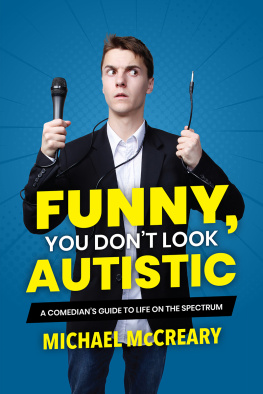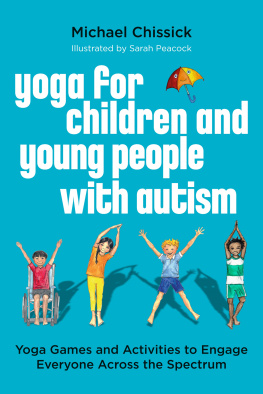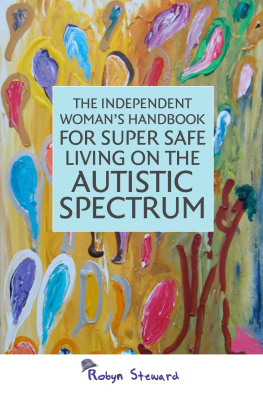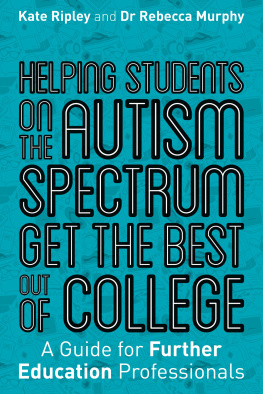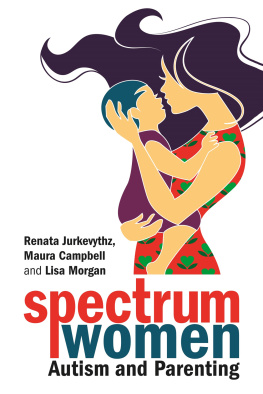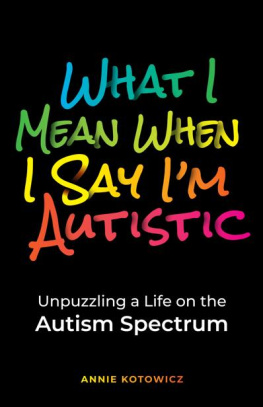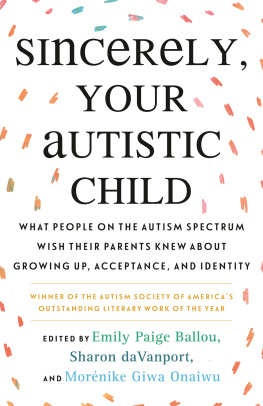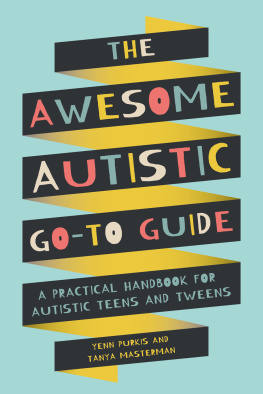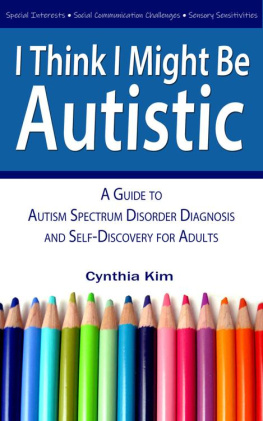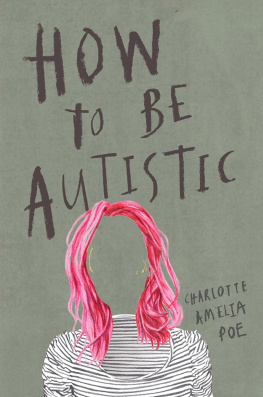Michael McCreary - Funny, You Don’t Look Autistic: A Comedian’s Guide to Life on the Spectrum
Here you can read online Michael McCreary - Funny, You Don’t Look Autistic: A Comedian’s Guide to Life on the Spectrum full text of the book (entire story) in english for free. Download pdf and epub, get meaning, cover and reviews about this ebook. year: 2019, genre: Home and family. Description of the work, (preface) as well as reviews are available. Best literature library LitArk.com created for fans of good reading and offers a wide selection of genres:
Romance novel
Science fiction
Adventure
Detective
Science
History
Home and family
Prose
Art
Politics
Computer
Non-fiction
Religion
Business
Children
Humor
Choose a favorite category and find really read worthwhile books. Enjoy immersion in the world of imagination, feel the emotions of the characters or learn something new for yourself, make an fascinating discovery.
- Book:Funny, You Don’t Look Autistic: A Comedian’s Guide to Life on the Spectrum
- Author:
- Genre:
- Year:2019
- Rating:3 / 5
- Favourites:Add to favourites
- Your mark:
- 60
- 1
- 2
- 3
- 4
- 5
Funny, You Don’t Look Autistic: A Comedian’s Guide to Life on the Spectrum: summary, description and annotation
We offer to read an annotation, description, summary or preface (depends on what the author of the book "Funny, You Don’t Look Autistic: A Comedian’s Guide to Life on the Spectrum" wrote himself). If you haven't found the necessary information about the book — write in the comments, we will try to find it.
Michael McCreary: author's other books
Who wrote Funny, You Don’t Look Autistic: A Comedian’s Guide to Life on the Spectrum? Find out the surname, the name of the author of the book and a list of all author's works by series.
Funny, You Don’t Look Autistic: A Comedian’s Guide to Life on the Spectrum — read online for free the complete book (whole text) full work
Below is the text of the book, divided by pages. System saving the place of the last page read, allows you to conveniently read the book "Funny, You Don’t Look Autistic: A Comedian’s Guide to Life on the Spectrum" online for free, without having to search again every time where you left off. Put a bookmark, and you can go to the page where you finished reading at any time.
Font size:
Interval:
Bookmark:
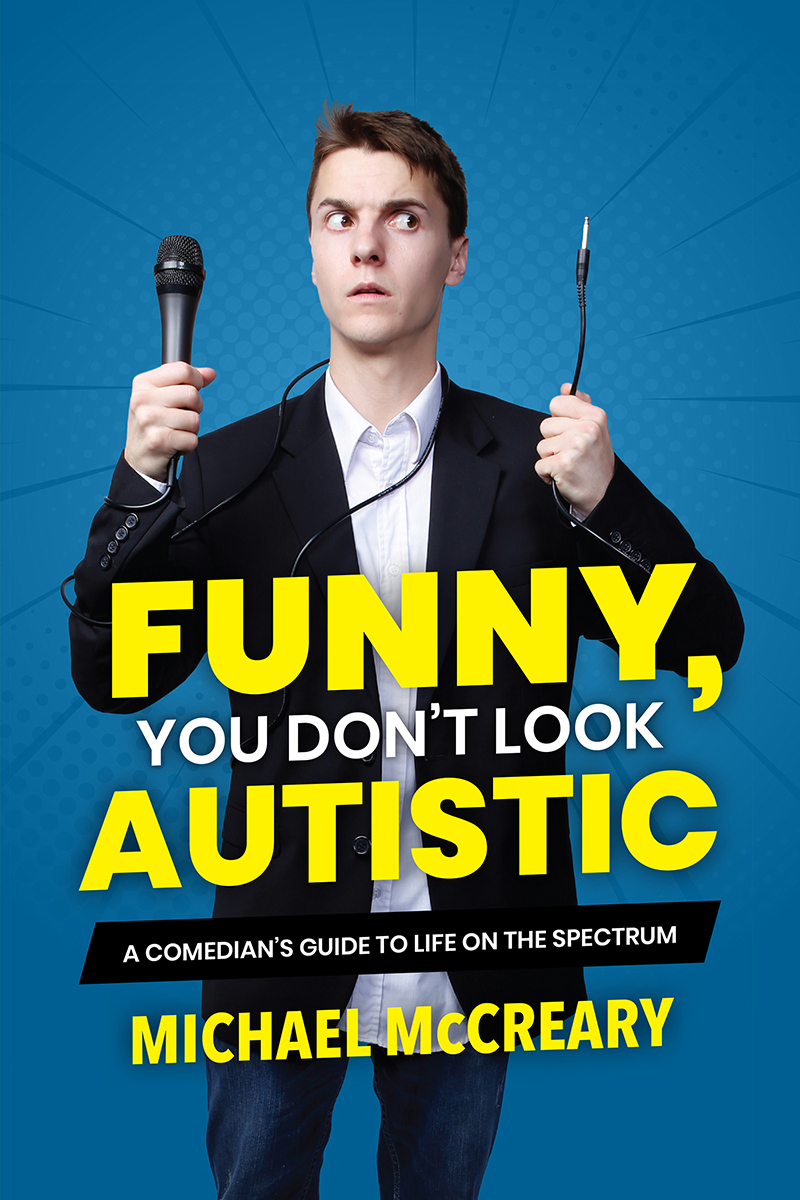

Dear Reader,
Watching a comedy show at Torontos Massey Hall, I asked myself, How CAN I get on that stage? Years later, I returned and asked myself, How DID I get on this stage?
Diagnosed with autism at the age of five, I was told that I would struggle to fit in. People would be hard to read. All the sights and sounds and touches that most people find simply annoying, would debilitate me. The doctors words proved prophetic and, for a while, it seemed that I might be doomed to a life of sensory hell and awkward conversation. That is, until I found a most unusual outlet for my angst stand-up comedy!
Funny, You Dont Look Autistic is a journey through this young comedians life on the spectrum. I want to thank you for taking the time to read it.
Yours truly,
Michael McCreary
Join the discussion on discuss.biglibraryread.com.

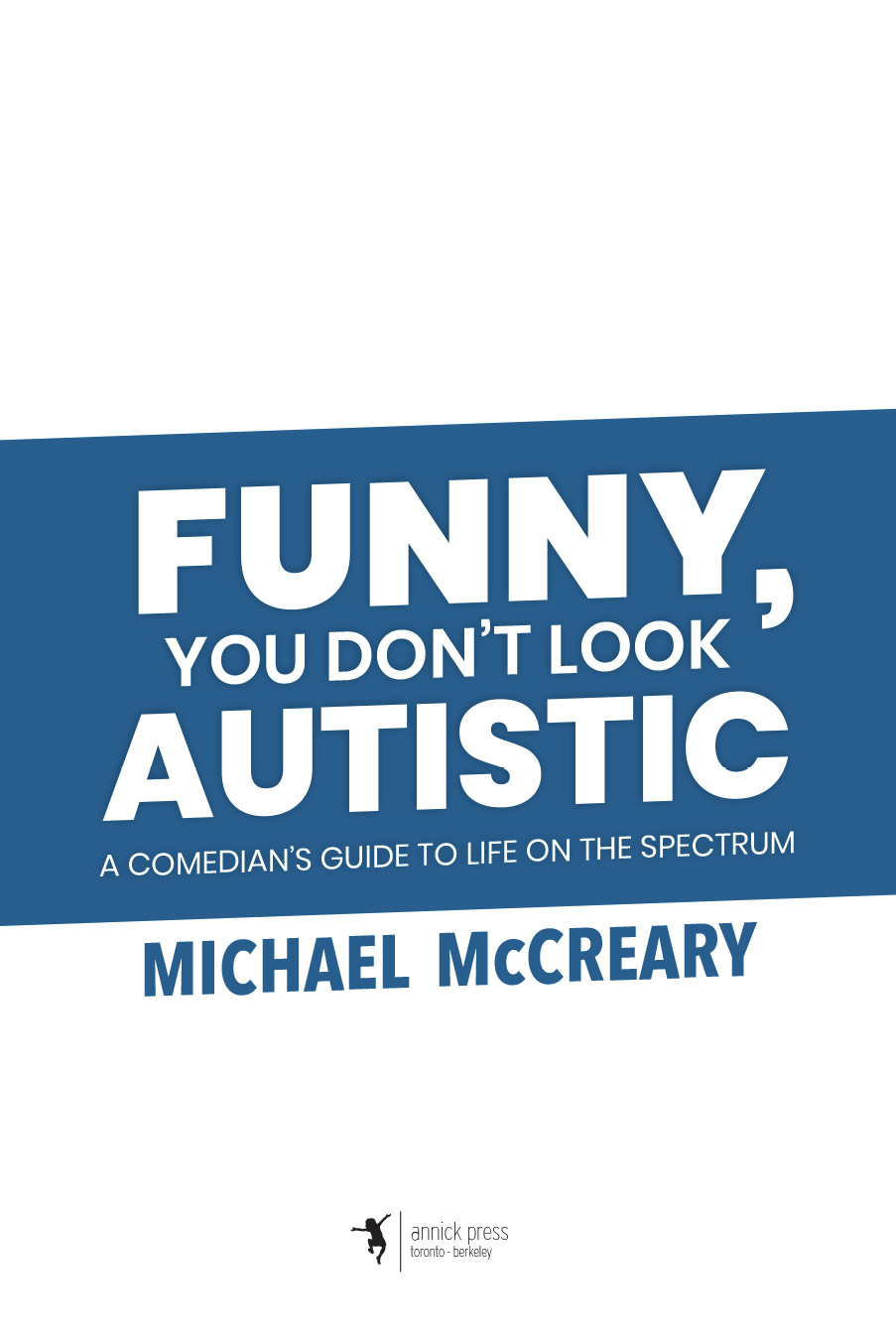
For Matthew
CONTENTS
Introduction
Part 1:
Portrait of the Aspie as a Young Man
Obligatory Origin Story
Senses Consensus Can Sense Us
The Elementary School Doorstop
Breaking My Legs
The Funisher: Vol. 1
Part 2:
Everyone has an anime phase
Michael Begins: The Search for Approval
I Fought the Law, and the Law Called My Parents
Socially Awkward Man
Cinema du Autism
Say (Literally) Anything
The Quest for Immortality
Part 3:
stim city
Good Cop, Transit Cop
Here Today, Improv Tomorrow
The Temple Grandin Saga
The Brothers Stim
Generator 2: Judgment Day
Epilogue
Acknowledgments
Autism Resources
Introduction
Hello! Im Michael and I do stand-up comedy about being on the autism spectrum.
Those two things dont sound like they should go together, but comedys all about breaking the ice on topics that people are too scared to talk about.
I was diagnosed with autism at the age of five. I wasnt diagnosed as a comedian until much later, though I always loved to perform and make people laugh. When I started doing stand-up in my teens, I realized that I could use comedy to help demystify autism and break down stereotypes. Being autistic has its challenges, sure, but its not all PSAs of empty swings blowing in the wind set to Sarah McLachlan music. Theres plenty to laugh about, too.
People responded to what I was doing, and soon I went from performing in schools and church basements to bigger venues: universities, comedy clubs, conference centers, and even Torontos famous Massey Hall. I toured Canada from coast to coast and was interviewed on national radio and TV. It was clear that the world had an appetite for autism-based humor.
Maybe you know someone with autism. In fact, you probably do, even if you dont know it. It might be a friend, someone in your family, or the kid who sits behind you in class who cant stop jiggling his leg (probably him). Maybe youre curious about what autism is, or youre seeking a deeper understanding so you can better support the people in your life.
Or maybe youre somewhere on the autism spectrum yourself. If so, congratulations! You are part of the 1.5 percent. Take solace in knowing youre not alone.
Either way, if youre looking for a comprehensive and detailed examination of autism and its myriad workings in the brain, this book youre holding is definitely not it. Put it down and pick up something that wasnt written by a comedian.
This is also not a book about some universal experience of being autistic. Everyone with autism spectrum disorder (ASD) is different, and I believe I can speak for all of us when I say that I shouldnt speak at all.
What you will find here is my own story of navigating life, school, friendship, love, and amateur theater as a person who happens to have ASD. Along the way, I hope to provide some insight based on my own experiences, and conversations with other people, into what being autistic is about. And if you ever figure me out, I want an explanation.
Whether youre on the spectrum or not, I hope that youll be able to relate to my struggles and triumphs, and that we can laugh together at all the quirks and awkward moments that come with being human.
I met a woman recently and happened to mention that I am autistic. She responded, Thats ridiculous, youre doing great!
I dont believe the terms are mutually exclusive.
Now is probably a good time to talk about how people with ASD like to refer to themselves. Some autistic people prefer person-first language: a person with autism. Others prefer to put the identity first: autistic person. I believe that people on both sides want to emphasize the value and worth of the individual. No matter what the persons point of view, its important to respect their choice of terms.
Personally, it doesnt matter to me if someone says Im autistic or that I have autism. They both mean the same thing in my eyes, and I use both terms. My choice at any point depends on what makes the sentence flow better and provides the clearest meaning. Over the course of this book, Ill be using these terms interchangeably.
So, remember, if youve met one person with autism (or autistic person), I hope its Dan Aykroyd. Hes a Ghostbuster!
Cheers,
Michael
A note to my non-autistic readers: As you embark on this journey through my ASD mind, theres a high likelihood that youll find at least some of my experiences relatable. Should this occur to you, take a deep breath and put down the Buzzfeed quizit doesnt mean youre autistic. People with ASD arent aliens, and we have many of the same thoughts and feelings as anyone else; the difference is in the intensity of those feelings and the degree to which they affect our functioning. Remember that only a professional can properly diagnose someone with ASD.
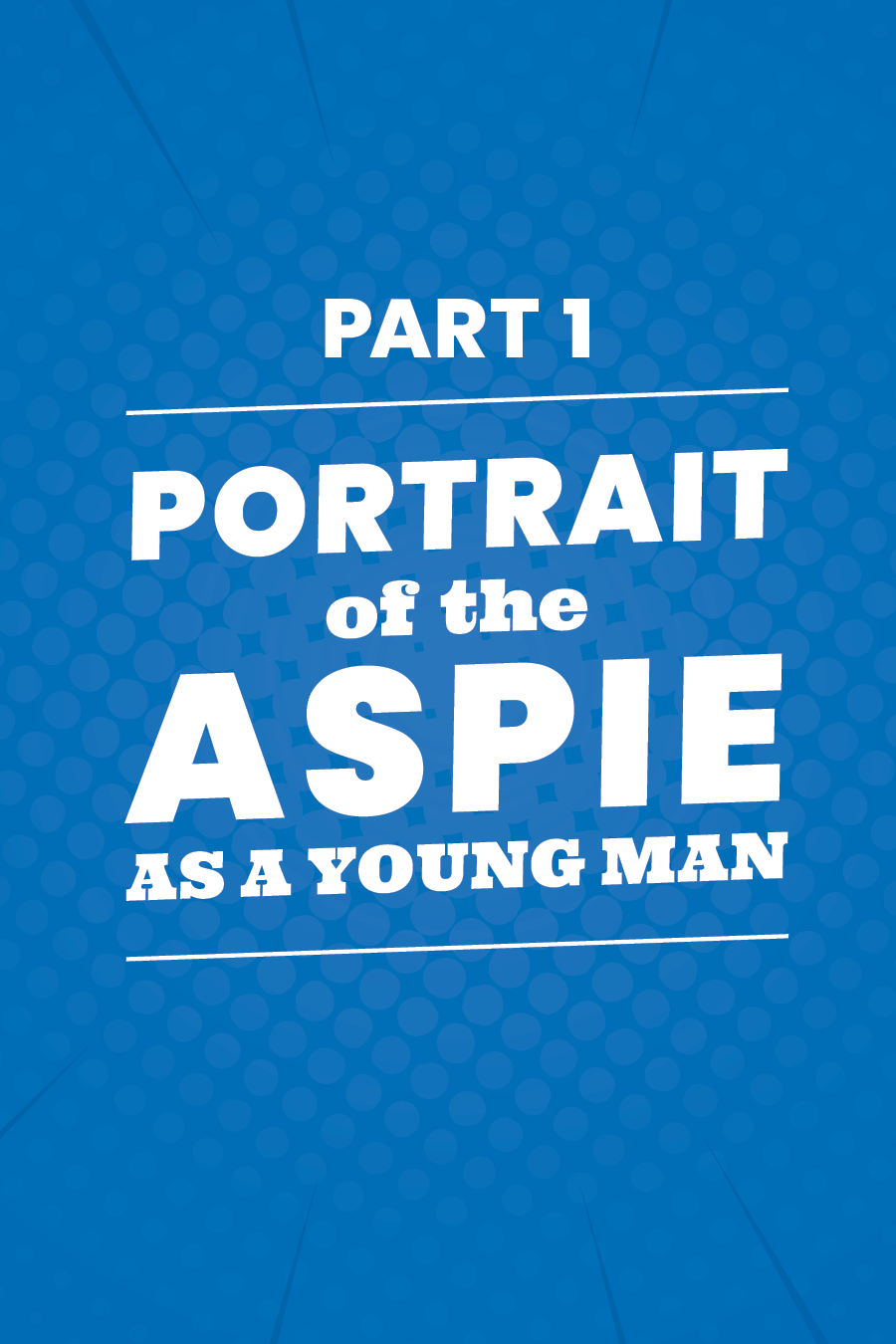
Growing up is tough for anyone.
But when youve been diagnosed with autism, its an extra challenge. You have to deal with the negative perceptions and misunderstandings other people have about you, all at an age when you probably cant even spell autism yet. This means you need to figure out your own strengths and weaknesses and how youre going to use them. That part took me a bit of trial and error to get right.
Our saga begins with an insufferable, catchphrase-spouting toddler straight out of a network sitcom and continues into the evolution of a hardened, vengeful preteen straight out of a gritty cable drama. (Theres a happy ending, I promise.) Youll also meet my familyitself a microcosm of the variety of thought patterns and behaviors that characterize the autism spectrum.
But first, one of the most formative experiences in a young autistic persons life: getting a diagnosis.
Chapter 1
OBLIGATORY ORIGIN STORY
Maybe it was the socks.
When I was a kid, I hated wearing them. I would be out walking with my folks and suddenly, Id scream, THERES A LUMP AND A CLUMP IN MY SHOE!
Theyd take off the shoe, assuming I had gotten a pebble or something stuck inside, but nothing was there. It was just the stitching on the inside of the sock that had wedged itself underneath my toes and was driving me nuts.
Font size:
Interval:
Bookmark:
Similar books «Funny, You Don’t Look Autistic: A Comedian’s Guide to Life on the Spectrum»
Look at similar books to Funny, You Don’t Look Autistic: A Comedian’s Guide to Life on the Spectrum. We have selected literature similar in name and meaning in the hope of providing readers with more options to find new, interesting, not yet read works.
Discussion, reviews of the book Funny, You Don’t Look Autistic: A Comedian’s Guide to Life on the Spectrum and just readers' own opinions. Leave your comments, write what you think about the work, its meaning or the main characters. Specify what exactly you liked and what you didn't like, and why you think so.

